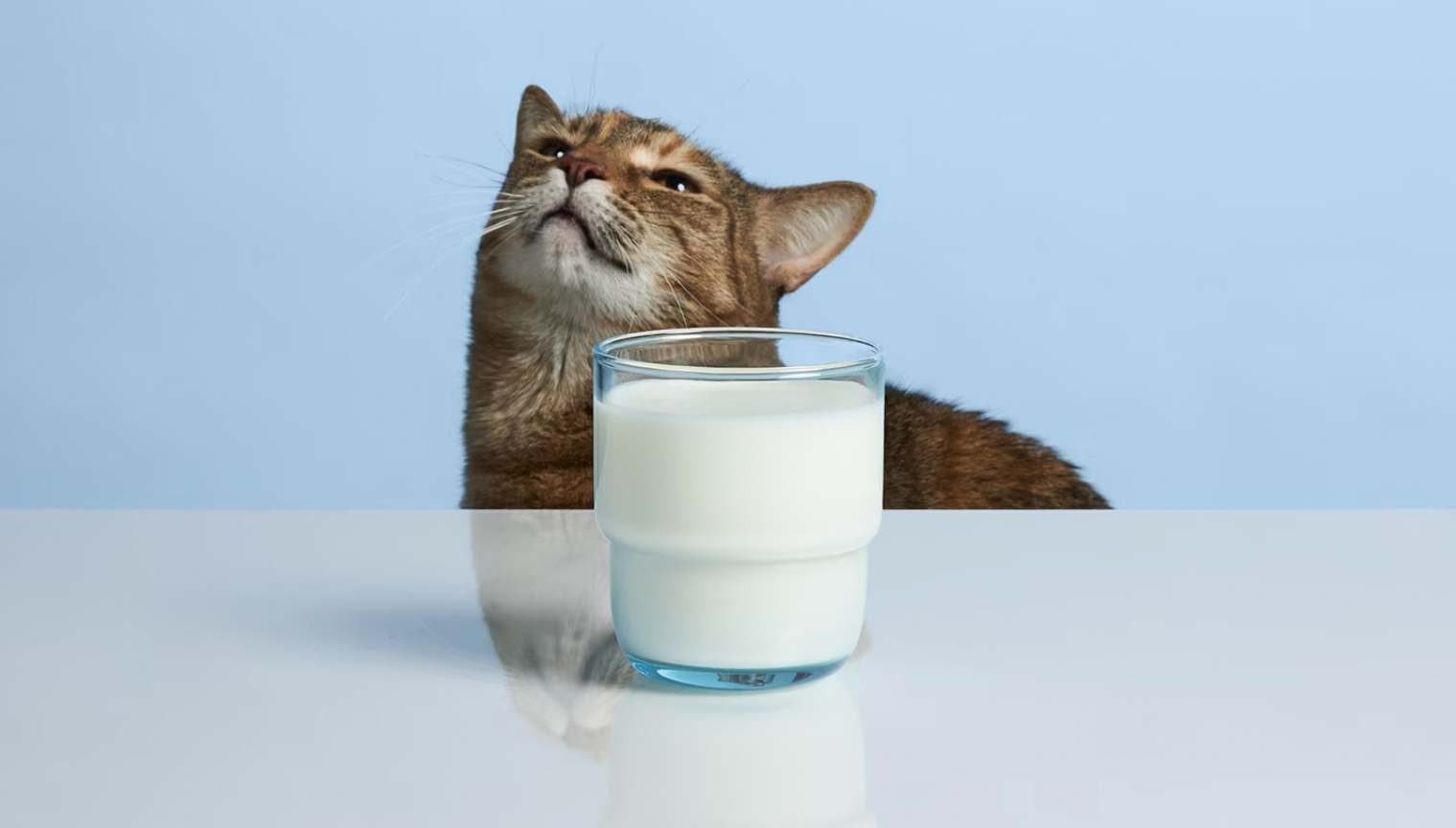Can cats drink milk? This question has long puzzled cat owners who want to share a classic treat with their feline friends. With images of cats joyously drinking milk seen throughout literature and media, it is a common belief that milk is a healthy and favorite beverage for cats. Yet, the reality is more complicated and requires a deeper understanding of cats’ dietary needs.
In This Article
Why Do Cats Like Milk?
The image of a cat lapping up a bowl of milk is iconic and one that conjures a sense of comfort and domestic bliss. But why do cats like milk in the first place? This question taps into both behavioral patterns and the dietary history of felines.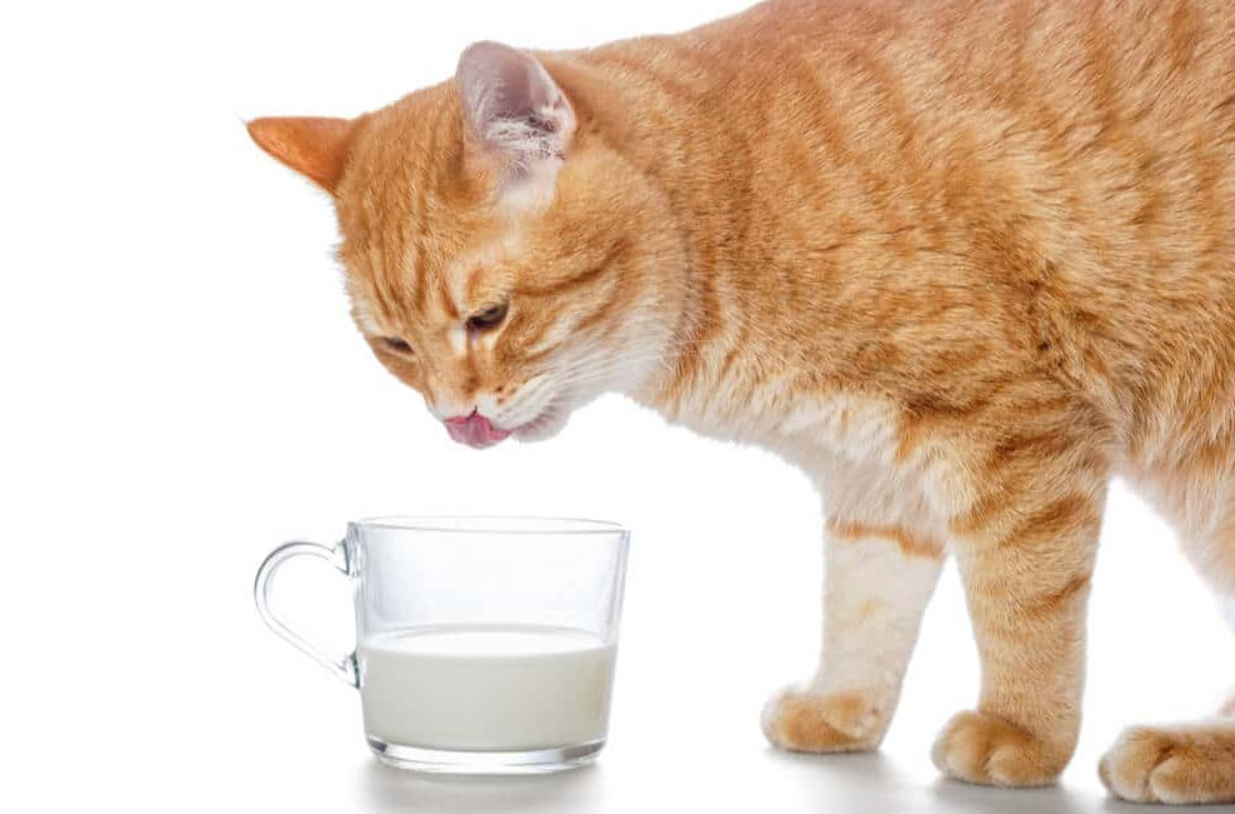
From kittenhood, cats are conditioned to associate milk with the warmth, care, and nutrition provided by their mothers. The first diet of any mammal, including cats, is their mother’s milk. Milk is the primary source of nutrition for kittens until they gradually transition to solid foods. This early exposure creates a lifelong association with the creamy texture and high-fat content found in milk, which cats find appealing. In a way, milk can elicit comfort similar to what kittens experience when nursing from their mothers.
As obligate carnivores, cats require a high-protein diet and fat for energy, which mother’s milk provides. This could also explain the preference for milk’s rich, fatty flavor — it’s akin to the high-energy content they’re instinctively inclined toward.
Can Cats Drink Milk?
Cats and kittens are often lactose intolerant. This means they do not have the necessary enzymes to break down the lactose—a type of sugar found in milk. While kittens produce an enzyme called lactase that helps them digest their mother’s milk, their production of this enzyme generally decreases as they wean and transition to a solid diet. As a result, the consumption of cow’s milk can lead to uncomfortable reactions such as diarrhea, gastrointestinal upset, or allergic reactions.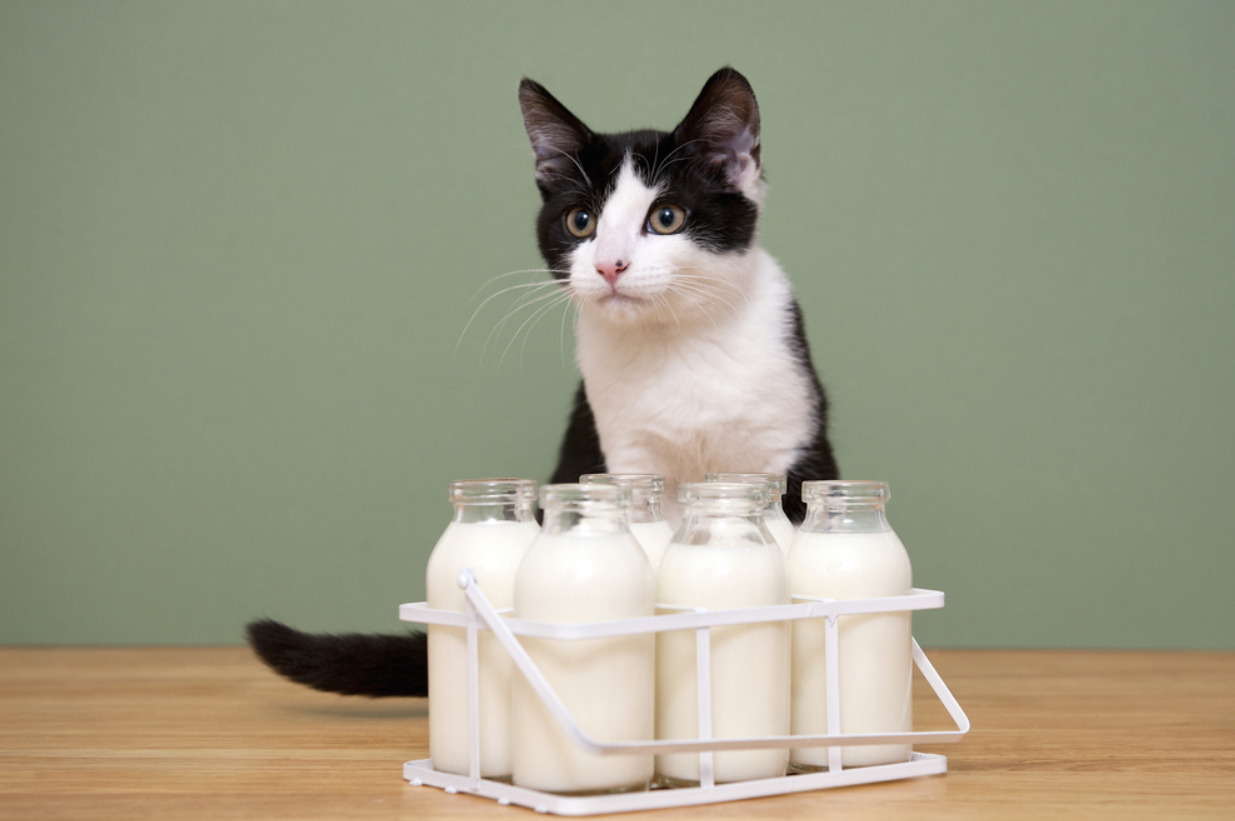
While a small sip of milk may not trigger a dramatic response in every cat, consistent feeding of milk is not recommended. Cats do not require milk as part of their diet; their nutritional needs are best met through high-quality cat food formulated to provide essential nutrients.
Can Kittens Have Milk?
To clarify, yes, kittens can have milk – but it must be the right kind of milk. The milk that kittens drink from their mothers, called queen’s milk, is rich in the nutrients necessary for a kitten’s growth and development. It contains the appropriate amounts of fat, protein, and antibodies needed by the kittens to thrive.
However, the common misconception is that store-bought milk, such as cow’s milk or goat’s milk, is an acceptable substitute for orphaned or abandoned kittens. This is not the case. Cow’s milk and other non-feline milks do not contain the right balance of nutrients kittens require and can cause stomach upset and diarrhea, as kittens lack the enzymes to properly digest lactose found in these types of milk.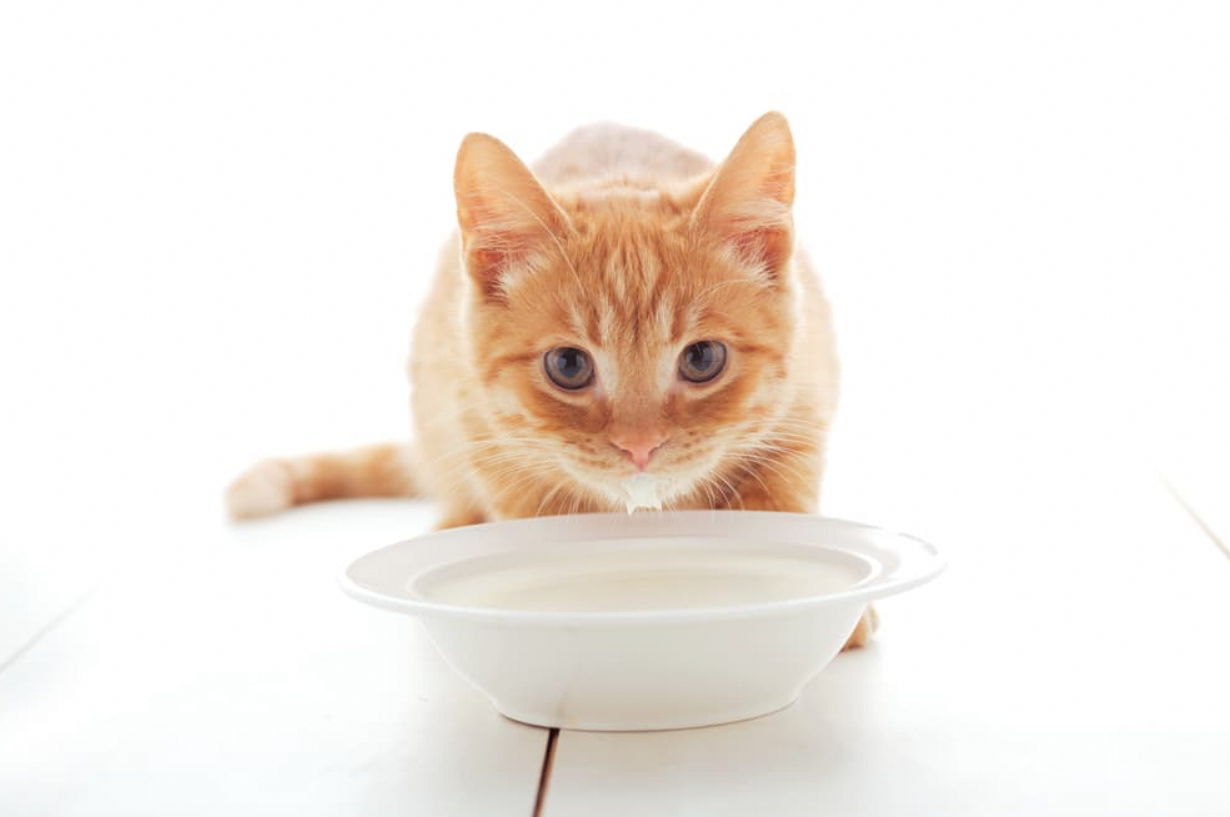
If you’re caring for kittens that are unable to nurse from their mother, the recommended course of action is to feed them a specially formulated kitten milk replacer. These are products designed to mimic the nutritional profile of queen’s milk. They can be found in pet stores or veterinary clinics and come in liquid or powdered forms that you mix with water.
It’s important to never feed kittens alternative types of milk, such as almond milk, soy milk, or condensed milk, as these can be harmful or lack the precise nutritional requirements that kittens have.
Can Cats Drink Milk Alternatives?
If you’re considering milk alternatives for your cat due to lactose intolerance or other dietary concerns, it’s essential to choose options that are safe and non-toxic to cats. While cats do not need milk after they have been weaned, some cat owners like to give their pets a milky treat. Some lactose-free or low-lactose options you might consider.
Non-dairy alternatives, such as almond, soy, coconut, or oat milk, are not recommended for cats. While these are lactose-free, they contain other components such as added sugars, additives, and plant proteins, which are not needed in a cat’s diet and can contribute to health issues.
It’s vital to remember that even lactose-free milk and milk alternatives should be viewed as treats and not as dietary staples. The nutritional needs of cats are complex, and their primary fluid intake should come from water. Cats are obligate carnivores, meaning their primary source of nutrition should be from meat, and they do not require milk as part of their diet.
What Can Cats Drink Instead of Milk?
When considering what beverages are safe for cats, it’s important to understand their specific dietary needs and what is best for their health. Although milk is commonly associated with cats, it’s not the ideal drink for them, particularly due to issues with lactose intolerance. So what are the alternatives that can keep your cat hydrated and happy?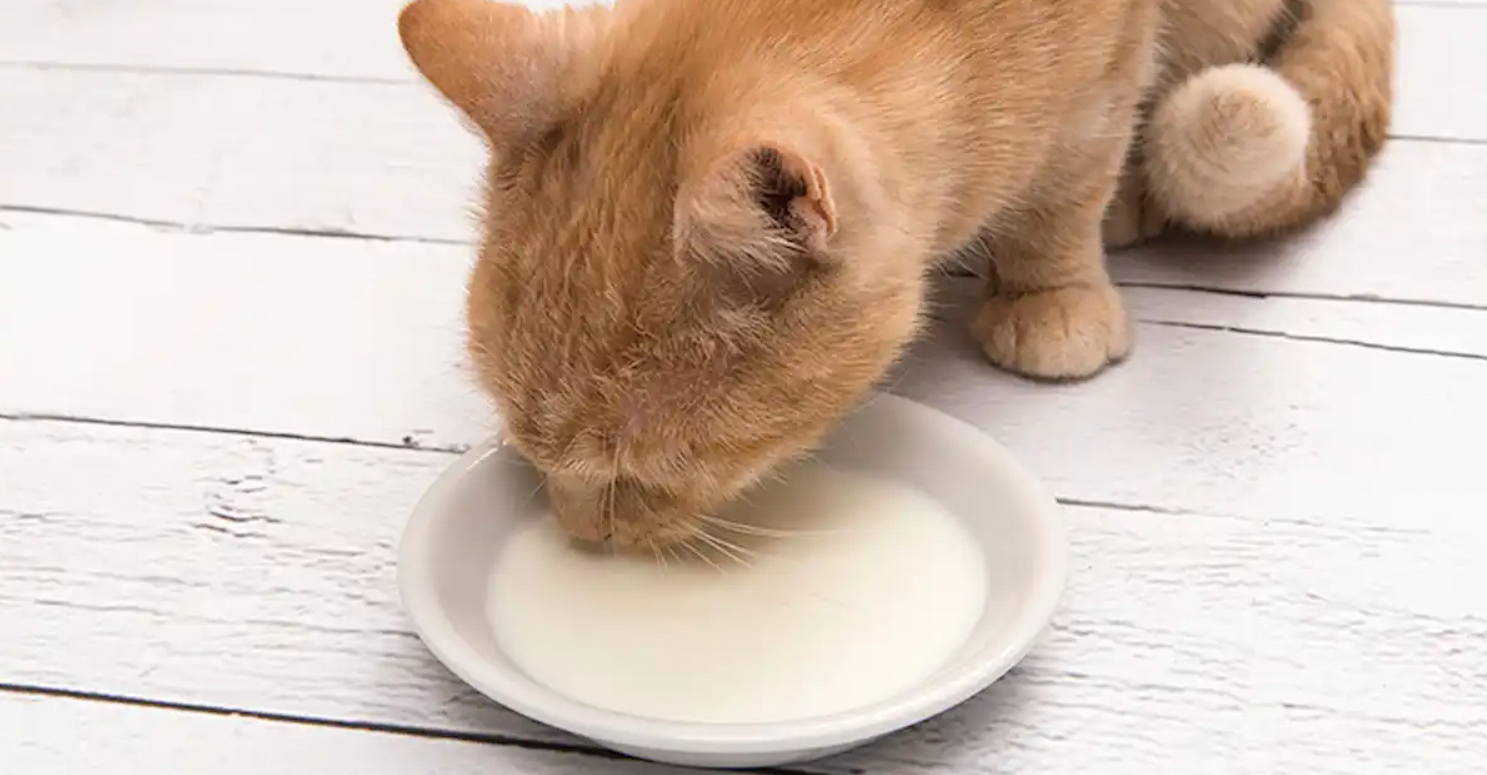
- Water: The most important and obvious alternative to milk for cats is plain water. Cats need constant access to fresh, clean water to maintain optimal health, support kidney function, and stay hydrated.
- Cat Milk Replacers: These commercially available products are designed to mimic the composition of mother’s milk. They are safe for cats and can be a good treat choice, especially for kittens that have been weaned early or for older cats that enjoy the taste of milk, as these products are typically lactose-free.
- Broth: A tasty alternative that many cats enjoy is unsalted broth. Chicken, beef, or vegetable broth can be served as a treat and is a good way to entice cats to increase their fluid intake. Just be sure it’s free from onions, garlic, and too much salt, all of which are harmful to cats.
- Tuna or Salmon Juice: The liquid from a can of tuna or salmon can be given in small amounts as a treat. Ensure it’s the kind packed in water, not oil, and doesn’t contain any added salt or seasonings. This should only be offered occasionally due to the high sodium content.
- Catnip Tea: Catnip, which is part of the mint family, can sometimes be a hit with cats. Steeping catnip in warm water can create a “tea” that may interest your cat. Cool the tea completely before offering it to your feline friend.
